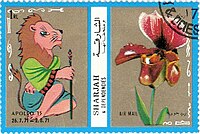I follow quite a few legacy publishers on Twitter and suffer from the not infrequent urge to block them as I stare, open-jawed, at their attempts at what they clearly think is 'marketing'. Where most self-published authors have worked out, often by trial and error, that 'buy my book' doesn't work, publishers are frequently to be found out there using Twitter as a broadcast medium.
My least favourite of an ugly bunch are the guys who have clearly logged into Twitter for their daily session ("Dave does Twitter from 4-5pm, then goes through the slush pile") who then retweet anything nice said about them or one of their authors. To the luckless recipient of this gold, a timeline suddenly packed with retweets of breathless praise for Dave's publishing house, event or client's book until Dave runs out of RT cruft. At this point, if you're really unlucky, you'll get Dave asking you what's your favourite colour or what book changed your life as he practices his 'engagement' skills.
The example that flashed across my disbelieving eyes last night, however, took the proverbial biscuit:
It ticks every 'shit use of Twitter by a publisher' box I can think of. What, you mean if I pre-order this book and send you proof that I have, indeed, placed a pre-order, you'll actually send ME a real whole honest-to-goodness PDF file containing chapter one of the book I can't read yet? I am SO grateful! I can't begin to thank you! Really! A whole chapter one of a book I just paid for but can't read as a crappy, bitty PDF (like the ones torrent sites serve) just for little me? Squee!
These are just a few examples of how legacy publishers are struggling to get their heads around marketing, promotion and distribution in a post-paper world. We're not quite there yet, of course - there's still a lot of papery stuff around. But anyone not habitually wedded to a paper-based business model can see that the consumption of ideas, information and narrative on mushed-up dead trees and bleached old knickers (paper) is moving to a diverse and often inter-connected ecosystem of devices with blinding speed.
When we are using those devices, we are not pleased to be 'disrupted' and, in a device-centric world, the publishers' ability to use their market power - sales teams stocking retailers - is minimal. They're no better off than the rest of us. The Internet, as we have been seeing since 1995, is a great leveller.
The idea that there is value in selling information encoded in a 'book' or indeed any other conventionally printed product now belongs in a
Cadbury's Smash advert. When was the last time you looked at a paper map?
I fondly recall driving across Scotland in 1988, following a printout from Autoroute 1.0 and picking up some hitch hikers who, when they found out I was following a computer programme around Scotland, became very nervous indeed and wanted let out early. They clearly thought I was a madman. It's taken a while, sure enough, but the paper map today is (along with the dedicated GPS device, incidentally) a thing of the past.
The ability to contextualise information based on a layer over the 'real' world is incredibly powerful. It's why Google has invested so much in building that layer with Earth, Streetview and the like. Apple is rumoured to be making a huge play in 'Augmented Reality'.
Not only are we consuming information about where we're going totally differently, we can clearly see around the corner a world where we won't care where we're going. We'll just tell the car to go there and it'll tell us how long it intends to take and then provide us some entertainment of our choice as we travel. It'll probably be plotting to kill us, but that's another kettle of fish.
Newspapers are clearly in the throes of another aspect of the movement of information online. In their case they're having to struggle with the reduction of value in two ways - the loss of revenue from people buying papers and that of advertisers willing to pay to reach those readers. The problem becomes one of scale - the news gathering resource and reach of a quality newspaper is expensive - and when you devalue the good through information ubiquity, you lose the ability to pay for large teams of journalists.
Who will custodiet custodes, then? Smaller teams working more efficiently - but also a slew of copycats, content farms and repurposers. Quality content has to fight harder to cut through the rubbish. It's messy out there, but there's one thing that's certain - nobody's interested in print anymore - and the revenue models for print don't translate online, the scale doesn't work at cents per click. Not only do you not have the resources for big newsrooms, presses and distribution networks, you arguably don't need them.
Print books are a good whose price is set entirely on its own inefficiency. The cover price of a book consists entirely of percentages based on the cost of print - including the author's royalty and distribution. A tiny proportion goes to editorial costs. Oh, and profit. Let's not forget profit. An author is remunerated on a percentage of the revenue generated by the book as, indeed, is a distributor - the latter gets a whopping 50% of cover price.
You could perhaps see how publishers would be wedded to this model - it has been thus for the past century or so. That's the way we do it around here, see?
When you go online, you not only rip out the costs of print and distribution and sales returns/stock loss but you also tear down the sales network publishers have depended on for so long. Bookshops are dead, sales are taking place on platforms the publishers don't own, control or influence. And so that most passive of sales environments (the long shelves packed with attentive soldiers of stiff-spined papery joy, the tick of the clock, Mildred sitting behind the till, reading and leaving you to have a nice, long browse) has been transformed into an online nightmare of conflicting shrill demands for people's time and attention.
In this brave new world, publishers no longer offer the significant scale they used to. Even the media they retain privileged access to are less powerful. Physical book retail is on a massive decline, despite constant announcements by 'the industry' that ebook sales are under pressure. These are mendacious and statistically skewed to an amazing degree - and they're quite poignant, in their way. 'It's going to be okay, chaps, you'll see' - that brave last sentence nobody quite believes, but they're all grateful for as they all walk into the hail of enemy gunfire.
The one thing publishers had to offer authors was scale. Scale of marketing, distribution, recognition. That's a product of marketing. Rip out the sales channel and go online and you've got some serious problems on your hands unless you can get your head around building serious online scale. Legacy big-hitters like JK Rowling or Neil Gaiman have made the leap and brought their audiences online with them and have massive reach on platforms like Twitter.
Publishers haven't. And they really don't know how to do it. They can't believe they need to do it. And they won't resource to do it properly because they're still clinging on to that last log in the sea.
Or, as an old pal once said to me (of literary agents, but never mind, it fits today's legacy publishers too), "They're like eunuchs in the Ottoman court. They see it happening all around them; they know what it is that's happening. But they're totally incapable of doing it for themselves!"
























